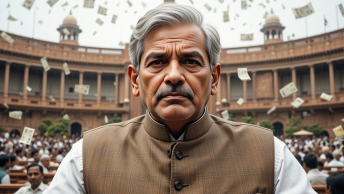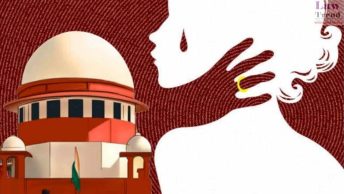Comments to my earlier post provoked me to research the subject for a better understanding of conventions on Indian Speaker. The Supreme Court in the Supreme Court Advocates-on-record Association vs. Union of India has effectively blurred the distinction between convention and the law (AIR 1994 SC 405).
Sir Ivor Jennings said in the Law and the Constitution (5th Edition, 1959):
“We have to ask ourselves three questions: first, what are the precedents; secondly, did the actors in the precedents believe that they were bound by a rule; and thirdly, is there a reason for the rule? A single precedent with a good reason may be enough to establish the rule. A whole string of precedents without such a reason will be of no avail, unless it is perfectly certain that the persons concerned regarded them as bound by it.”
In the Advocates-on-Record Association case, Justice Kuldip Singh, on behalf of the majority Judges applied the Jennings’ test to identify the existence of a convention that in the matter of appointment of the Judges of the High Courts and the Supreme Court, the opinion of the Judiciary expressed through the Chief Justice of India is primal and binding.
A similar attempt can be made to identify the existence of a convention that the Speaker must belong to the ruling party or a supporting party and the Deputy Speaker to the Opposition. First, what are the precedents? The precedents clearly suggest that Speakers starting from G.V.Mavalankar to the present Speaker, Somnath Chatterjee were chosen because they either belonged to the ruling party or a supporting party (an instance of conventions evolving with the advance of coalition politics) at the time of their election.
The only departure from this convention was in 1996 when P.A.Sangma was chosen as the Speaker during the 13-day Atal Behari Vajpayee Government at the Centre. At that time, the Government had not yet won the vote of confidence in the House, and all the parties in the House supported Mr.Sangma’s candidature. After the fall of the Vajpayee Government, Mr.Sangma’s party, the Congress, supported the successor Government.
The breach of this convention today is apparent. Mr. Chatterjee does not enjoy the support of his party, the CPI(M) for his continuance in office. A precedent can be found in Uttar Pradesh when, Keshari Nath Tripathi remained as Speaker, despite his party, the BJP being in the Opposition. But the BJP did not oppose his continuance as the Speaker. This single precedent, lacking the status of a convention, need not detract us.
Second, did the actors in the precedents in the Lok Sabha believe that they were bound by a rule?
An essential element in the question whether conventions are binding in the present is the mental state of political actors who followed such convention in the past. A study of the Lok Sabha debates during the election of every Speaker and the Deputy Speaker clearly reveals that the Members, by and large, subscribed to the convention that the Speaker must belong to a ruling party or a supporting party, and the Deputy Speaker to the Opposition.
True, there were occasions when Deputy Speakers did not belong to the Opposition. They were M.Ananthasayanam Ayyangar (1952-56), S.V.Krishnamoorthy Rao (April 1962-1967), R.K.Khadilkar (1967-1969), G.Lakshmanan (DMK) (1980-84) and M.Thambi Durai (AIADMK) (1985-89).
But each of these departures from the convention suggested a justification of a waiver on particular occasions, or exceptions to the rule. Ayyangar was elected unopposed. Other Deputy Speakers were elected after the Opposition had recorded a token contest, and expressed its displeasure over lack of consultation by the Government. It was significant that even during the hey-day of one-party rule, the Nehru Government offered the Deputy Speakership to Sardar Hukam Singh of Akali Dal twice, in March 1956 and May 1957. Hukam Singh later became the Speaker in the Thrid Lok Sabha, after joining the Congress.
In 1967, the Prime Minister, Indira Gandhi told the Lok Sabha that she would have preferred an Opposition candidate for the post of Deputy Speaker, had the Opposition been united. She restored the convention in 1969, when the Lok Sabha chose G.G.Swell belonging to the Opposition as the Deputy Speaker unanimously. Lakshmanan and Thambi Durai were rewarded as their parties were allies of the ruling party in the elections, but the Government did not depend on their support for its survival.
The near-consensus over the years that the Deputy Speaker must belong to the Opposition is intertwined with the similar consensus across the political parties that the Speaker must naturally belong to the ruling or a supporting party. A convention is established, if the parties to the convention, given an option to do otherwise, choose to support the convention. There has been nothing to prevent the Lok Sabha from choosing an able Member belonging to the Opposition to adorn the office of the Speaker. If the ruling party or the coalition wanted, the Opposition would have readily consented to it.
Third, is there reason for the rule?
The preference for a Speaker from the ruling or a supporting party stems from a complete consensus across the political parties right from the beginning in the Lok Sabha that independence and impartiality are the most important attributes of the office. This is also in sync with the general concern that the Speaker should be respected and honoured by all the political parties and individual Members of the House.
This may appear as a paradox, but in reality it is the Speaker who enjoys the confidence of all sections of the House – including that of his own party – who can ensure political neutrality of his office. The convention that Speakership should go to the ruling alliance and the deputy speakership to the genuine opposition evolved out of this understanding and the practical compulsion of keeping the delicate balance in the House. Therefore, a breach of this convention is likely to lead to the breach of another convention, that is, the neutrality of the office of the Speaker. None of these concerns may be relevant in the present context. But being relevant and the presence of sanctions against the breach of a convention cannot be the criteria to judge its binding nature. A Speaker belonging to the Opposition is tolerated because of expediency, not out of respect for a convention.
In his article in Indian Express, Mr.A.G.Noorani draws a parallel between Mr.Chatterjee and the first Indian Speaker of the Central Legislative Assembly, Vithalbhai Patel. But Mr.Noorani’s view that Patel refused to quit as the Speaker is not correct. Patel appears to have vacillated first, but finally quit, giving priority to the need to follow the Congress’ decision to boycott the legislatures.
Having quit the membership of Swaraj party (a distinct party within the Congress led by Motilal Nehru) on becoming the Speaker, Patel rightly felt that he was not bound by the party discipline. He rejected the suggestion that he should contribute to the party fund; instead he sent the savings from his salary to Mahatma Gandhi regularly.
On January 21, 1930, he explained his position as President of the Assembly in reference to the Resolution of the Lahore Congress, advocating boycott of legislatures.
“Whilst, therefore, I am quite clear that it would be wrong and indeed dangerous for any President to act on the mandate of any political party in or outside the House, I am equally emphatic that, circumstanced as India is, a situation might arise when in the larger interest of the country, the President of the Assembly might feel called upon to tender his resignation with a view to a return to a position of greater freedom. I have no doubt in my mind that such a situation has now arisen in the country.”
In his resignation letter addressed to the Governor General, Lord Irwin, on April 20, 1930, Patel wrote: “I have come to the conclusion that under the new conditions, my usefulness as President has ceased to exist and I should be serving the interest of my country better at this juncture by giving my open and active support to the Congress movement and endeavouring to the best of my capacity to keep on which Pandit Jawaharlal Nehru, the President of the Congress was arrested and sentenced.”
(Excerpted from Patel’s resignation letter to Lord Irwin, dated 25.4.1930; Vithalbhai Patel: Life and Times, Book Two, by Gordhanbhai I.Patel, 1950, p.1139.)






Vithalbhai Patel makes it clear that he is quitting not because the party wants him to do so, but because he believes that this action is in the “larger interests of the country.” He notes the particular circumstances under which he is taking the action – the struggle to be free of British rule – as can be seen in the phrase “circumstanced as India is.” As such, I think Mr. Noorani is correct in drawing the parallel. But I know you are not going to agree…
Btw, A. G. Noorani is far too careful to make a slip like that you claim. (Most of his articles in Frontline are about the slips that others make!) Nowhere does he claim that Vithalbhai Patel refused to quit. He only notes that “On January 29, 1930 Vithalbhai made a detailed statement in the Assembly which stands as an authoritative pronouncement on the office of the Speaker.” He then quotes the relevant part of the statement – about the speaker being above party politics – and leaves it at that.
Dear Venkatesan,
You say:
This may appear as a paradox, but in reality it is the Speaker who enjoys the confidence of all sections of the House – including that of his own party – who can ensure political neutrality of his office.
No questions about this. But then, you add:
The convention that Speakership should go to the ruling alliance and the deputy speakership to the genuine opposition evolved out of this understanding and the practical compulsion of keeping the delicate balance in the House.
How? Note that the British House of Commons, out of exactly the same considerations (the need for the speaker to be neutral), has evolved a convention which is very different from our own. In any case, I disagree that having the speaker from the ruling alliance constitutes anything like a convention for reasons I have explained in a comment on a previous post.
What, I think, is a convention is the fact that in recent times, the Lok Sabha has avoided an election for speaker altogether. I have checked that the last few speakers – Manohar Joshi, G. M. C. Balayogi, Purno Sangma, Shivraj Patil, Rabi Ray and of course, Somnath Chatterjee – were all elected “unanimously.” This aspect – consulting the opposition beforehand to avoid a contested election – seems to have been in operation at least since 1985 or so but it was not always so. (Do you know the last instance of a contested election for speaker? From what I can make out, it was Balram Jakhar in 1980.)